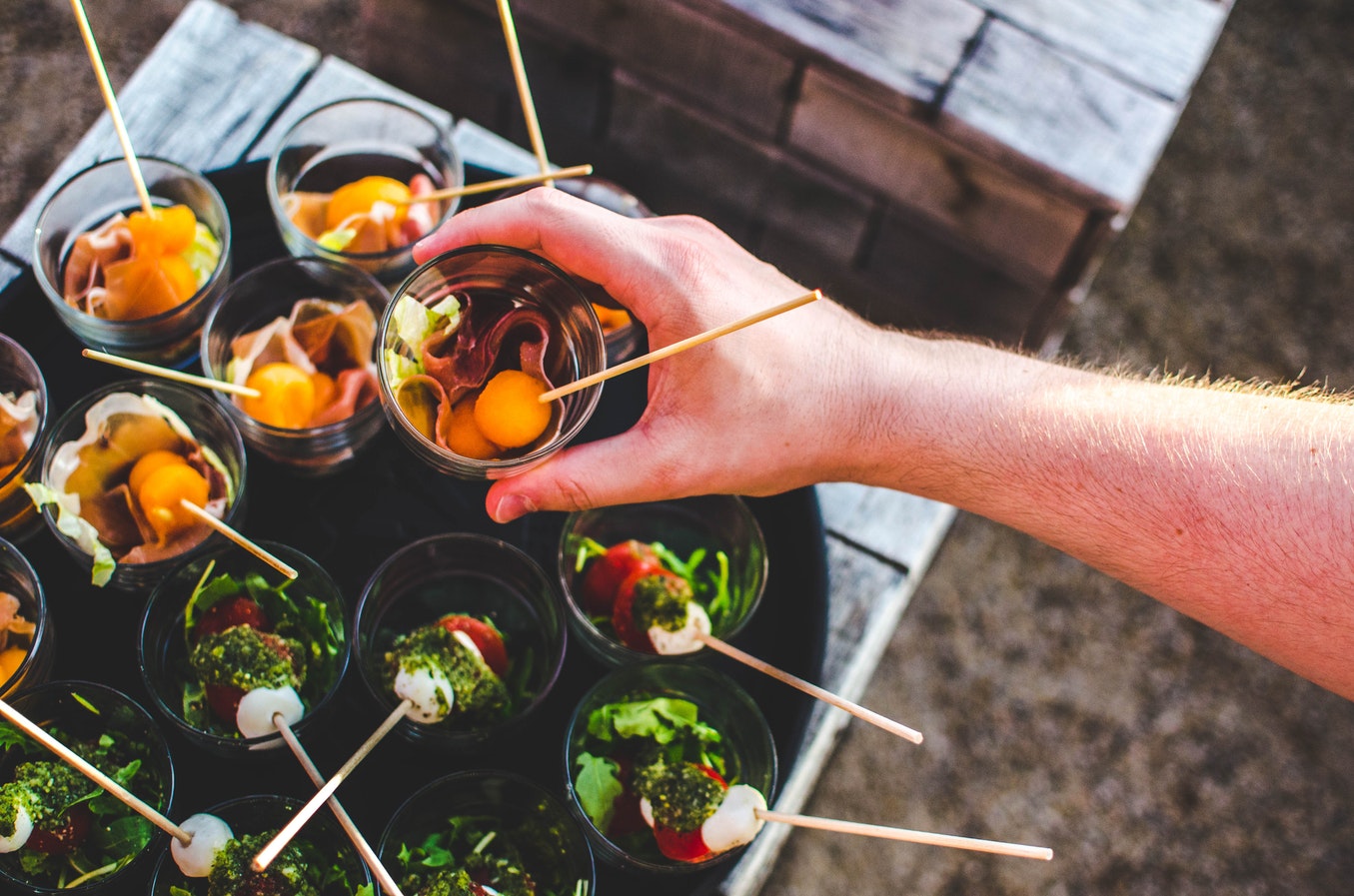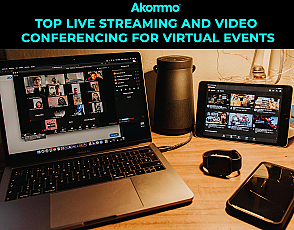
Top Eco-Friendly Hotels in Europe for Sustainable Business Travel
Eco-tourism, a rapidly growing sector within the global tourism industry, is making significant strides toward sustainab...

To plan a successful corporate event, there are a handful of major points to hit, and thousands of small factors to account for in between. The responsibilities of a corporate event planner are composed of a multi-faceted, never-ending to-do list of details that most people wouldn't even consider leading up to the big day in order to carry out a truly spectacular corporate event. Deciding on the event content, finding the most exciting destination, and choosing the perfect venue are all important, but what every guest most looks forward to if we're honest is the food! Today we're sharing 24 Tips for a Successful Menu Tasting for your next corporate event shared by our founder and CEO, Jason Greenman. Take out your notepad and pen, put your napkin in your lap, and get ready to have your guests talking about "how good the food was" during your next corporate event.
1.) Don't Jump Too Soon
Before spending your money, time, and efforts on an event menu tasting, make sure that your event venue doesn't have an exclusive catering contract with an in-house company. If this is a deal breaker for you, ask your event venue if there is a fee you can pay in order to bring in your own catering.
2.) Consider Your Budget
Before your menu tasting, a catering company should ask which kind of menu you'd like to try - know the budget parameters and limits of your event. There's no point in trying lobsters and prime rib during your menu tasting if it's not a financially feasible option for your corporate event.

Photo from pixabay.com
3.) Be Open to Local Suggestions
A good caterer will make local suggestions. The more knowledge they have to offer, usually the more passionate the chefs. This is especially important if you're hosting a destination event! Your guests are going to want to try the local delicacies native to where your event is taking place.
4.) Nothing in Life is Free
Keep in mind that though a menu tasting can be offered by a catering company as complimentary, that's only if you book with them. You should expect to pay for the menu tasting in full to whichever catering companies you don't choose for your event.
5.) Know Your Guests
Are you catering to a professional football team? Are you catering to a group of models? Are you catering to doctors from the Middle East? Understand your guests' cultural dietary preferences and what they like and don't like as well. Make sure to taste a menu that your guests are going to actually enjoy.
6.) It's All About Balance
Too much of anything is never a good thing. Make sure there's a suitable diversity of vegetables, proteins, and carbohydrates distributed throughout the different courses. There's no excuse for a guest leaving hungry from a 3-course meal!

Photo by Katarzyna Pracuch
7.) There's no "I" in Event
Sadly, it's not about you. Even though you may love sushi or you're a huge fan of foie gras, that doesn't mean everyone else is. This is for the greater good, so be sure to make sure your event menu tasting doesn't reflect your personal preferences.
8.) Table Setting
Service starts from the moment you walk in the door. What's your first impression when you see the table setting? If it's a positive association, it's a good sign of the service that's to come. Putting effort into the small things makes a world of difference and you want the best for your corporate event.
9.) Worth the Wait(staff)
What waitstaff have been provided to do the service during your event? What is their attitude like during your tasting? Imagine this is how your guests are going to be received - is it up to par with the service your guests are expecting? It's worth a little extra to have excellent waitstaff.

Photo by chuttersnap on Unsplash
10.) Ready to Write!
A good caterer will provide you with a paper and pen along with a printed copy of your menu. Didn't get the luxury treatment? It's not the end of the world and certainly doesn't speak for the quality of the food. You can also always take notes and organise them accordingly. Be sure to write down anything and everything that stands out.
11.) Make a Rating System
Rate each dish individually! After you've tasted 30 plates, they all start to taste the same. Rate them right after tasting them so you remember which ones you actually enjoyed. Whether it's 1-5 or 1-10, make a rating system and stick to it throughout the tasting.
PS - it's OK to be constructively critical! This is your event, and therefore your responsibility to make sure it's enjoyable.
12.) Description Overload
Pay attention to the descriptions of each dish! The more in-depth the description of each meal, the more you can trust the caterer's knowledge of what they've prepared. They should be elated to share their creations with you. Chefs and high end restaurants will use unfamiliar vocabulary, but remember - there are no dumb questions. What’s most important is for you to understand exactly what you (and your clients) will be eating.
PS -The wines should be described in an ultra-detailed fashion, especially for a destination event, from the wine region to the grapes, make sure you have the information ready to share.

Photo by Aneta Pawlik on Unsplash
Remember these tips (and a few extras) at your next menu tasting with the Akommo Event Menu Tasting Checklist!Download your free copy here!

13.) Don't Pretend
It doesn't matter if you're with Gordon Ramsey - if you don't like pork cheek with seaweed emulsion cream, you don't like it. Don't feel pressured just because your tasting partner enjoys something and you don't - you're entitled to your own valuable opinion. Trust your gut (and your palate).
14.) Don't Be a Pig
It's tempting to lick your plate clean (and that's a good sign!) but you can taste up to 20 dishes in a span of 2 hours. During a recent testing Jason did with a client, he tried 27 dishes in one sitting! Be sure to pace yourself in order to last until the dessert dishes. There's a reason it's called "TASTE" test, ladies and gents.
15.) Picture Perfect
Chefs are more than happy to make a beautiful work of art, so don't be afraid to ask them to modify a dish and turn it into something that really contributes a major "wow factor" to your event. If your guests are whipping out their phones to take pictures of their meals, you can consider your mission accomplished.
16.) This is NOT a Wine Festival
You should NOT finish a glass of wine at your taste-testing and ALWAYS drink water in between! One, it's not professional, two, you won't be able to appreciate neither the wine nor the food as much as it will all blend together at some point. Be sure to keep your guests' preferences in mind here as well! You might love a full-bodied red from Bordeaux, but that might be too much for someone who rarely drinks.

Photo by Thomas Martinsen on Unsplash
17.) Keep it Smart
When it comes to the before dinner snacks and aperitifs, you want it to be beautiful, of course, but that shouldn't trump practicality. Generally people will have a drink in one hand, leaving the other hand free for eating. Make sure there are options that can be enjoyed with one hand!
18.) Sweet Finale
Your dessert should reflect the rest of the meal - if it's been a heavy starter and main course, choose something lighter like a mojito sorbet. Have soup and salad? Let your guests indulge in a coulant or a heavy cheesecake to finish off the night on a sweet note.

Photo by chuttersnap on Unsplash
19.) What Alternatives Are There?
As you're tasting plates, consider special diets that an exceptional few guests might have. Do they have vegetarian, lactose-free, gluten-free, kosher, vegan, etc. options? What are the alternatives for intolerances and specific diets? Considering options for guests with restrictions really make a huge difference for them.
20.) Don't Be Afraid
Don't be afraid to ask the chef or caterer for modifications of dishes that you enjoyed but that weren't 100% perfect. You know your guests and you're there to make sure their palates are pleased. If something isn't right, don't hesitate to make the comment! The catering company should be happy to accommodate your request.
21.) Finishing Up Fresh
Revise your notes and make a preliminary selection of the dishes while it's still fresh in your mind. Finish off your taste testing with a coffee and run through which dishes you enjoyed the most, which you liked the least, and why.

Photo by Gabrielle Henderson on Unsplash
22.) Eco-Friendly Event
Ask the caterer beforehand what their food waste policy is and see what they do with the food that isn't consumed during their events. Are there local organisations that your event can collaborate with in order to reduce food waste?
23.) Wait to Negotiate
Save negotiations for after the tasting - you don't want to waste your time negotiating with a provider before you even decide you want to work with them.
24.) Safety First
Do they have a health and safety guide? What documents can they provide about their health and safety processes. Be sure to clarify this with the catering company when going over the details of your upcoming event in order to ensure the utmost safety and protection for your guests.

Did you find these tips helpful? Subscribe to our blog today for more corporate event tips to make your next event the most enjoyable yet.
Browse the latest tips, tricks, & venue updates from Akommo

Eco-tourism, a rapidly growing sector within the global tourism industry, is making significant strides toward sustainab...

Never, in the history of the world, have we been so dependent on technology. The pandemic has forced us to rely more hea...

Jason Greenman - CEOMental Health:He just finished reading Atomic Habits, an inspiring book that encourages you to imple...

The MICE (meeting, incentives, conferences, and exhibitions) and hospitality industries have been two of the hardest hit...

We are facing a global pandemic that is affecting the lives of everybody on the planet. Most of us have been confined to...